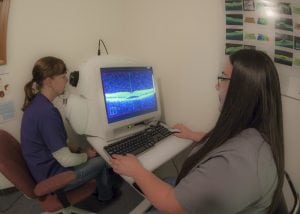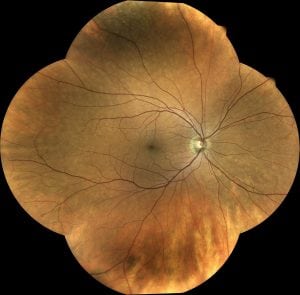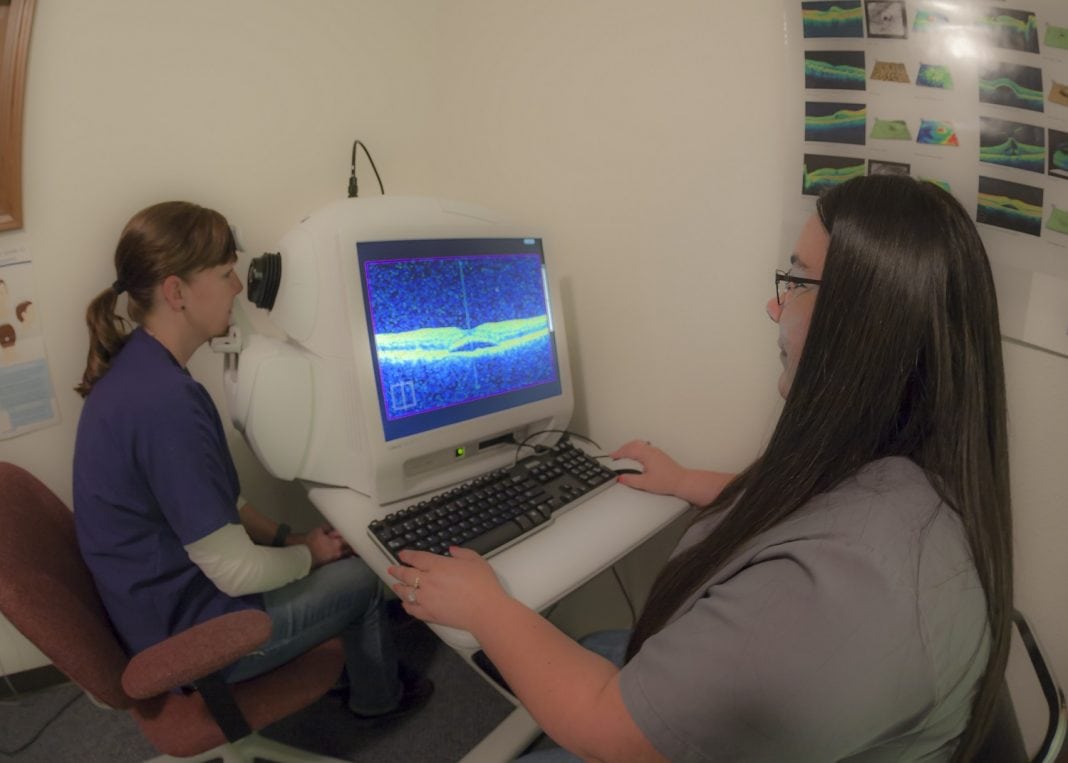Diabetes is a growing problem in the United States. The Centers for Disease Control and Prevention (CDC) estimates that 29 million Americans suffer from this disease. While many are aware that diabetes can cause heart disease, kidney failure, and stroke, many are not aware that diabetes can cause severe eye problems, the worse being diabetic retinopathy, which causes permanent vision defects. People with type I, type II and even gestational diabetes are all at risk to develop eye problems. For this reason, Dr. Joseph Dolezal at Innovations in EyeCare urges people with diabetes to pay attention to changes in their eye sight.
“Diabetes is the number one cause of blindness in the U.S., so it is a major health risk for causing visual impairment,” Dr. Dolezal says. Diabetics are 40 percent more likely to develop glaucoma and 60 percent more likely to form cataracts. Eight percent of the all cases of legal blindness are from diabetes, he adds.

The reason diabetes affects eyesight is because it causes sugar fluctuations in the bloodstream. When that happens, it damages the blood vessels in your retina. Excess sugar also causes these tissues to swell, which causes fluctuating vision and can lead to cloudiness or cataracts.
“The retina at the back of the eyeball is actually brain tissue and if it does not get insulin to carry the sugars from the blood vessels into its cells, it starts shutting down very quickly in much the same way that we pass out if blood flow is deprived to the brain,” explains Dr. Dolezal. “This leads to new blood vessel formation called neovascularization that tries to get more blood into the retina. These new blood vessels however are very poorly constructed so they leak and can shrivel up the retina causing permanent damage to your eyesight if present.”
Glaucoma is also a very real risk, because these “weedy vessels” block drainage channels and the cataracts’ swelling narrows drainage that leads to unequal increasing in pressure and eventual vision loss.
Early Detection Is Vital
According to the National Eye Institute, 45 percent of people with diabetes have some level of diabetic retinopathy, but only half of them are aware of it.

Unfortunately, in the early stages, there are no outward “signs,” so detection is almost impossible. By the time you do notice vision impairments, Dr. Dolezal says it is very difficult to remedy. Diabetic retinopathy is permanent. Because of this, those with diabetes must have yearly eye exams that can detect the trouble before it’s too late. The National Eye Institute says woman who are diagnosed with gestational diabetes should have an eye exam as soon as possible. Those already having vision problems may need to go in for check-ups more often.
“Eye injections of a drug called Avastin can help shrink down these ‘weedy’ blood vessels, but only if done early in the process,” he explains.
If left undetected, those with glasses will find that their current prescription will no longer work. They get a new prescription and then that one stops working within a couple weeks. “The vision becomes distorted and focusing powers of glasses cannot straighten out these irregular images well enough to see properly,” Dr. Dolezal explains.

At Innovations in EyeCare, they have the retinal imaging technology needed to identify these pathologies earlier than the naked eye can detect. Since diabetes affects your entire body, not just your eyesight, it’s important that all your doctors are aware of any issues you may be having. “We work with your primary care physician/practitioner to make sure that your whole body diabetes care is managed well,” Dr. Dolezal says.
Conversely, if do not have diabetes but you are having vision problems, you should ask your eye doctor and primary care physician about being tested for the disease. The CDC estimates that 1 in 4 people who have diabetes are not aware they have the disease. Your failing eyesight may be a sign of an even bigger issue so it’s always good to rule out any possibility of diabetes.
For more information, visit the Innovations in EyeCare’s website or call 360-736-7385.
Sponsored










































